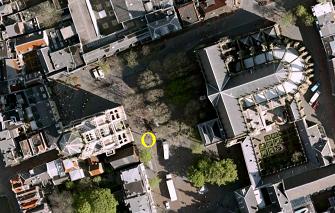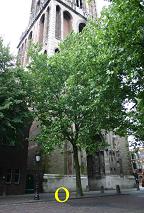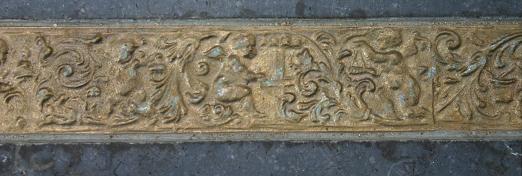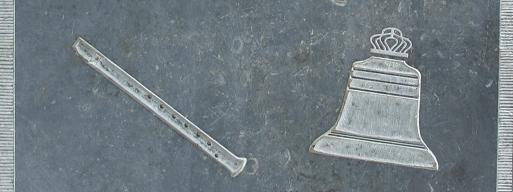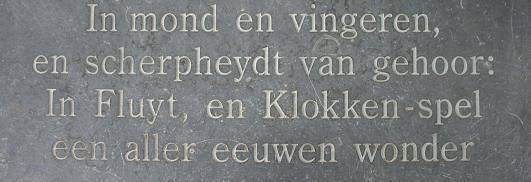|
Jacob van Eyck Quarterly |
2007, No. 1 (January) |
||
|
Jacob van Eyck gets a memorial stone
Utrecht rather abandoned Jacob van Eyck in the centuries following his death. When the Weeskerk, where he was buried, was razed in the 1920s, his grave had already been removed. In 1982 the Janskerk hung a small bell in Van Eyck's memory, but no other public space offered any memorial to the Utrecht Orpheus. Not a single street, square or even an alley is named after him. In the run-up to the 350th anniversary of Van Eyck's death (2007), the city made a conciliatory gesture. On the Domplein (Dom Square), not far from the foot of the Dom tower, the paving stones are now adorned with a memorial stone (see yellow circle on the photos). The tablet is located at approximately 52°05'26.16" N, 5°07'17.79" E. Mayor Annie Brouwer-Korf of Utrecht unveiled the stone on July 3, 2006. The plaque was the initiative of the present Dom carillonneur, Arie Abbenes, and this author.
At the top of the plaque is a border decoration in bronze, copied from a bell in the Dom carillon (Hemony, 1663). The decoration was designed by the Flemish sculptor Artus Quellinus the Elder (1609-1668):
(detail) The engraved inscription begins:
[Musician and Director / of the Bell-works of Utrecht]
Illustrations of a recorder and a bell depict Van Eyck's activities as a musician. The representation of the recorder was inspired by an engraving from the Vertoninge en onderwyzinge op de hand-fluit by P[aulus] M[atthijsz] from 1649 and the Onderwyzinge by Gerbrandt van Blanckenburgh (c1656).
The last two lines of Van Eyck's four-line epitaph are engraved at the bottom of the tablet:
[Van
Eyck, scion of the Baxes, lies beneath this stone; (Transl.: Dr. Peter J. Large)
There appears to be only one drawback to this memorial stone: many people are under the mistaken impression that the jonker is actually buried underneath it. Thiemo Wind (Translation: Jonathan Reeder) |
|||
|
Interested in receiving a reminder? Send an e-mail: Did you reach this page through a search engine? Click below to go to the |
|||
